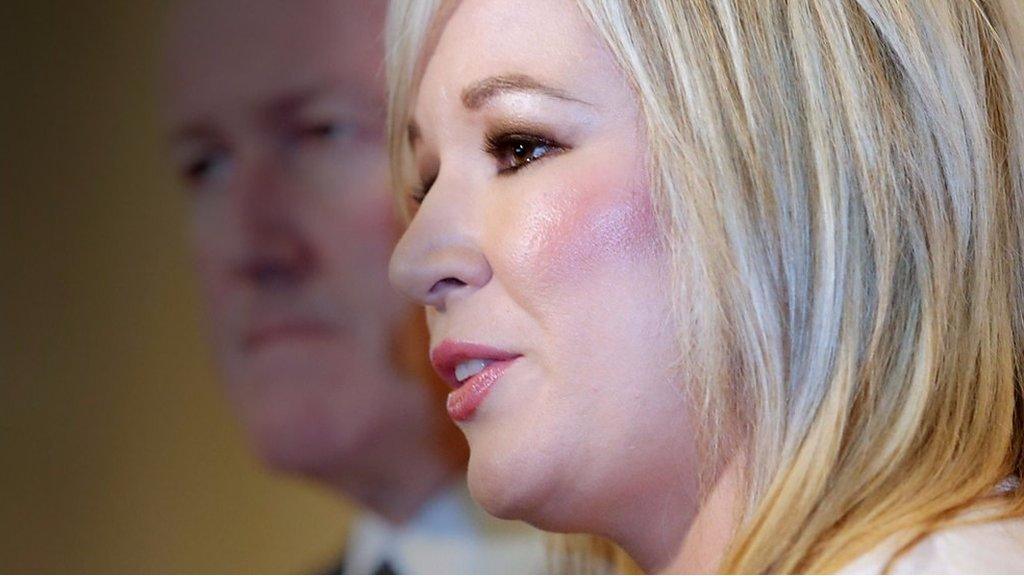Sinn Féin: Why the leadership challenge to Michelle O'Neill matters
- Published
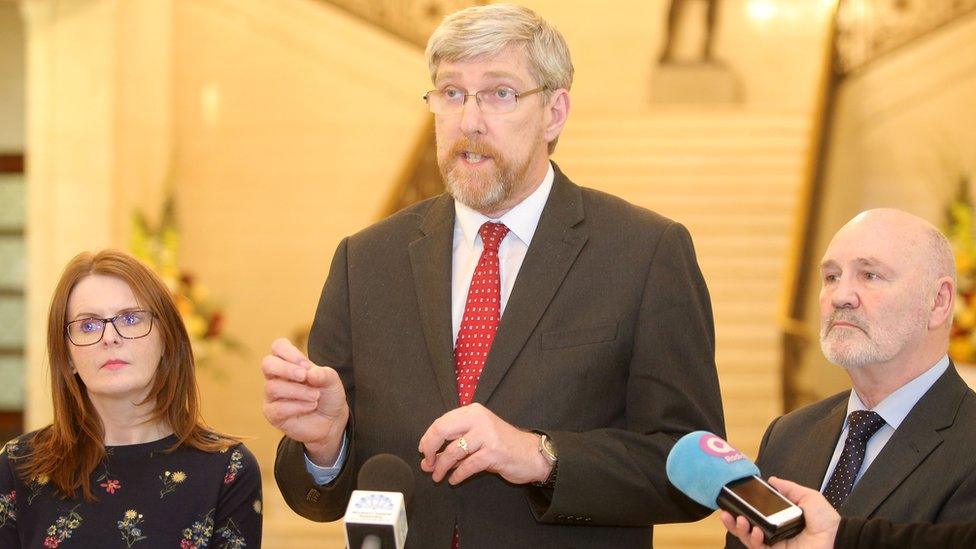
John O'Dowd is a former Stormont minister and even held the role of deputy first minister when Martin McGuinness ran for Irish president in 2011
Anyone who has even a vague interest in Northern Ireland politics will know the weekend saw a significant internal development within Sinn Féin emerge into public view.
In a shock move, long-time assembly member John O'Dowd revealed he would challenge Michelle O'Neill for her position as party vice-president in November.
The reasons for the surprise expressed by many journalists and commentators were two-fold.
First of all, Sinn Féin is known for operating collectively - it does not typically do leadership "contests" in the way other political parties do.
When Michelle O'Neill was chosen to replace Mary-Lou McDonald as vice-president, she was the only nominee and her appointment had practically been rubber-stamped by the time the Ard Fheis (annual conference) rolled around.
Mrs McDonald had been chosen to take over as party president, with Gerry Adams stepping down after 35 years.
'Sense of gravitas'
Secondly, for someone of John O'Dowd's experience and standing to take a decision of such magnitude would suggest that perhaps not all Sinn Féin members are content with the current leadership line-up.
It's not clear yet what the former Stormont minister's reasons for running are.
Since the story broke, he's stayed quiet - but no doubt in the coming weeks that will change.
Will his stance on key party policies be at odds with Ms O'Neill's? Is it about personalities? There are lots of questions.
Political commentator and former Sinn Féin election candidate, Chris Donnelly, described the development as a departure for the party and a "rubicon moment".
He told BBC's Good Morning Ulster programme that Mr O'Dowd had "natural" leadership qualities and a "sense of gravitas" but would face a considerable challenge to get support at a national level.
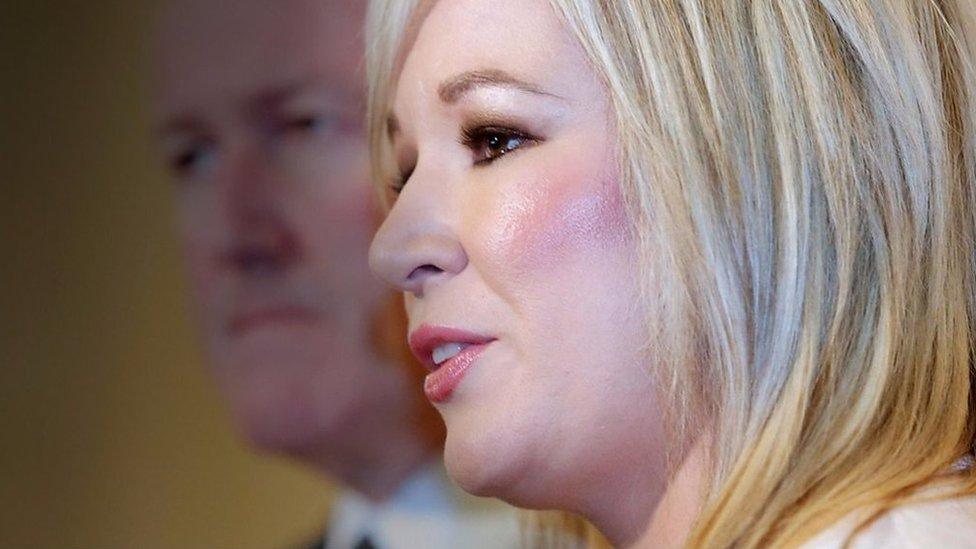
Michelle O'Neill was named Martin McGuinness' successor as Stormont leader in 2017, and became vice-president the following year
Andersonstown News columnist Andrée Murphy said how it had been announced was abnormal, given the usual "collegiate approach" within Sinn Féin.
Speaking on BBC Radio Ulster's Talkback show, she also criticised the timing of the announcement because Michelle O'Neill was out of the country on holiday at the time.
She added that Ms O'Neill had been highly regarded during her time as Stormont's health minister and was popular within the party.
After Mr O'Dowd confirmed his decision to stand, Ms O'Neill took to Twitter to confirm she would fight to retain her position.
She also said she welcomed "debate and choice" within Sinn Féin.
Allow X content?
This article contains content provided by X. We ask for your permission before anything is loaded, as they may be using cookies and other technologies. You may want to read X’s cookie policy, external and privacy policy, external before accepting. To view this content choose ‘accept and continue’.
It was re-tweeted by a number of the party's prominent members including its MEP Martina Anderson, Foyle MP Elisha McCallion and ex-Stormont Culture Minister Carál Ní Chuilín - perhaps an indication of where their loyalty already lies.
'Centralised organisation'
Few would have foreseen that less than two years after Ms O'Neill became vice-president she would be facing competition for her job.
Former Sinn Féin TD (member of the Irish parliament) Peadar Tóibín, who left the party last year after it changed its policy on abortion, said it was an unprecedented move for such a "centralised organisation".
He said the party's biggest weakness was how much of its decision-making was centralised and described the leadership challenge as a "welcome, positive change" from how Sinn Féin tends to operate.
However, he added: "This may be start of a change but the machinery of the party will be used to maintain the status quo."
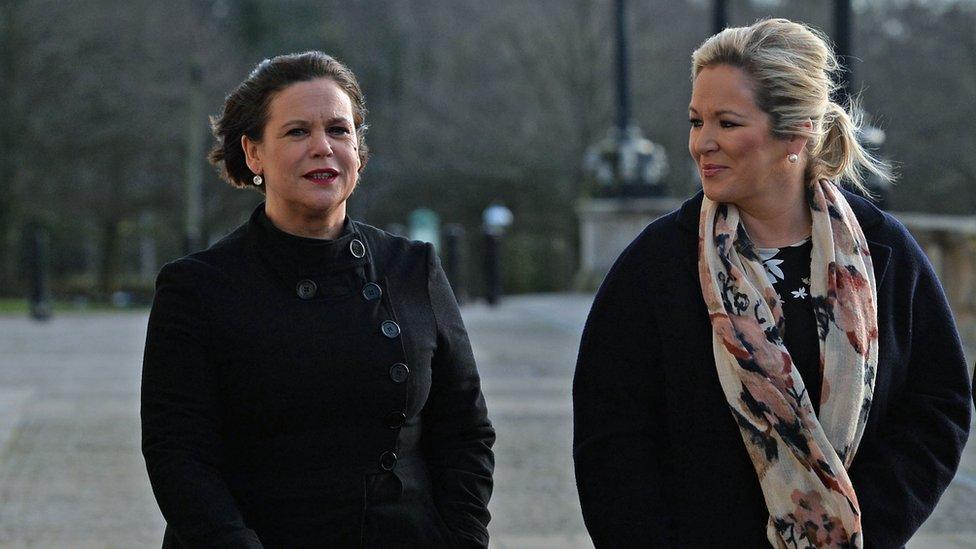
Sinn Féin President Mary Lou McDonald and Vice President Michelle O'Neill have led policy changes within the party on abortion and other social issues
The contest comes at a time of complete political upheaval in Belfast, Dublin and Westminster.
Whoever wins will be taking on the deadlock over Brexit and efforts to restore the power-sharing institutions at Stormont, as well as trying to rebuild ground after the party's recent electoral setbacks in the Republic of Ireland.
It lost two of its MEPs in the European poll and its vote in the council elections was down too.
Business as usual?
Many will be watching to see if John O'Dowd can get support outside of Northern Ireland, and persuade high-ranking party members to publicly back him.
Sceptics, like Peadar Tóibín, believe it will be back to business as usual by the time of the Ard Fheis.
But leadership contests often tend to indicate that, for one reason or another, all is not rosy within a political party.
Interest has certainly been piqued and in the coming weeks, we'll see whether it's a momentary blip - or a sign that the fight for the future of Sinn Féin is really on.
- Published31 August 2019
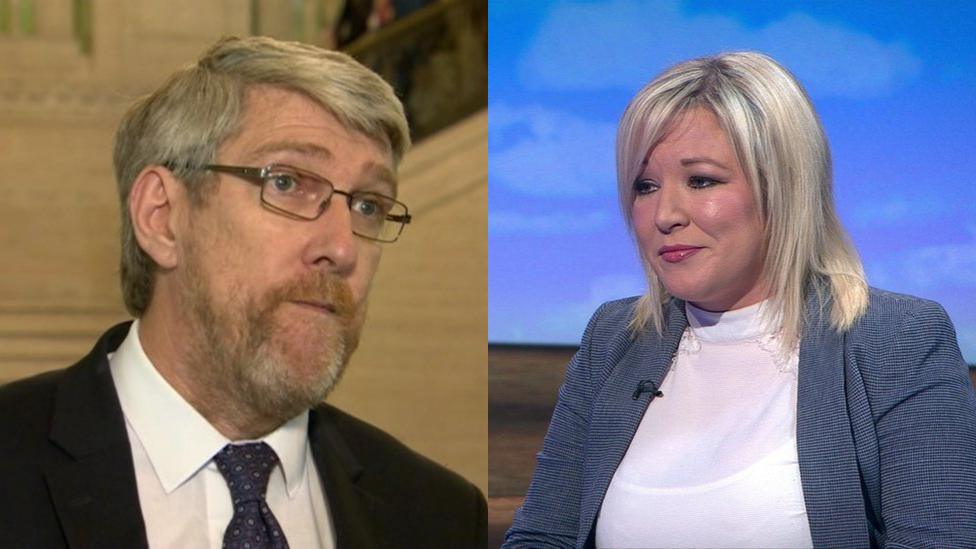
- Published2 November 2018
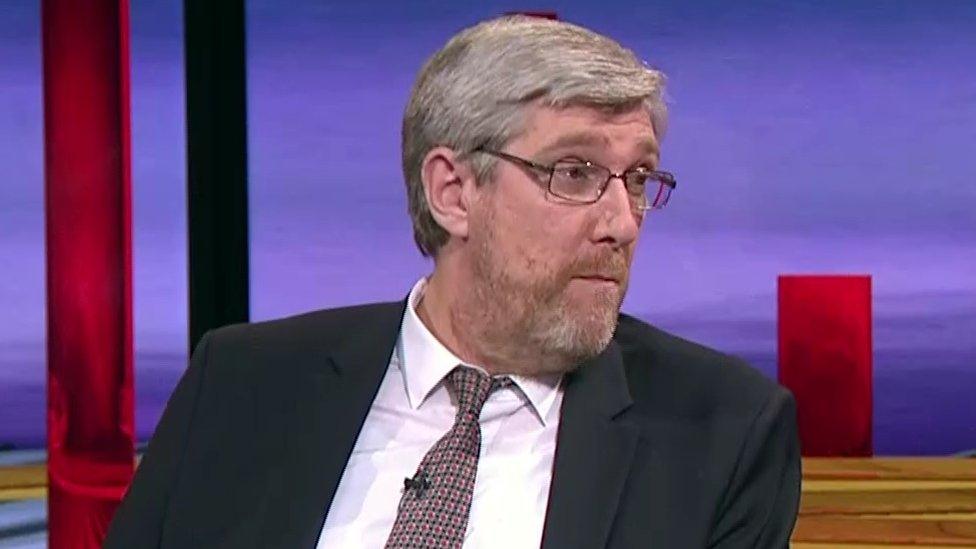
- Published23 January 2017
